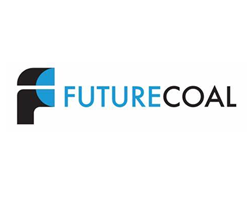Leave the Emotion and Geopolitics at the Door

August 15, 2024 - Since 2019, FutureCoal CEO Michelle Manook has consistently declared that coal-consuming and producing nations cannot afford to be divided. At the Bluefield Coal Symposium, her message remained unchanged, reiterating, “Coal is too vital to be sidelined by emotions and geopolitics.”
Manook, recognised by Mining Journal as one of the Top 50 most influential people in mining in both 2022 and 2023, discussed her global travels and interactions with ministers, industry leaders, and media. She observed varying perceptions of coal, noting that some nations see it as essential for keeping the lights on and driving economic growth, while others view it as a cornerstone for future development, providing critical minerals and infrastructure, with innovation and technology taking centre stage.
.png)
Michelle Manook
However, many nations, primarily from emerging and developing markets, have felt pressured to move away from coal due to public and international demands emanating mostly from developed markets – a hypocrisy which is not lost on many nations where energy poverty remains a key issue. While some have transitioned past coal, using it only when necessary for energy security, many still recognise its crucial role in their economic and environmental development.
Before Manook’s tenure as CEO of FutureCoal, the industry was fragmented, lacking a unified strategy for a global vision. She has maintained that to harness coal sustainably and economically, the global coal value chain must unite. “Coal cannot be held back by domestic issues, business competition, or short-sighted policies,” Manook emphasises. For her, she reminds us that coal is more than just a commodity; it’s a “human story”—one that has given us the modern life that we all enjoy here in the U.S. and has a critical role still to play in alleviating poverty by improving the lives of the 773 million people who still lack access to electricity globally.
Citing the International Energy Agency (IEA), Manook points out that coal demand in sub-Saharan Africa is projected to increase by 57% between 2020 and 2040, with Central and Southern Asia seeing an 18% rise over the same period. “Coal remains a vital energy source for over 80 countries, not only supplying electricity but also playing a crucial role in heat production.”
During her recent visit to the United States, Manook heard the same sentiments she’s encountered in China, India, Australia, South Africa, and beyond: “We all care about coal,” “We want to better people’s lives,” “We want to modernise our industry,” and “We care about the environment and making coal sustainable.” All of these things can be achieved if the playing field is levelled, and the industry unites in its message and education. These messages reaffirmed what she has known for years—that the global coal value chain shares common goals. “We all want to advance and modernise coal’s future legacy through innovation and technology, enhancing lives through the energy transition and economic development,” she states.
The Sustainable Coal Stewardship map, introduced by FutureCoal, reflects this new perspective on the coal value chain. “Coal is a versatile multi commodity resource with countless opportunities—producing energy, steel, liquids, agricultural products—while eliminating waste by reusing it in a circular economy,” Manook explains.
“There are opportunities for mining companies, equipment manufacturers, critical mineral production, advanced materials, engineering, and even renewable energy,” While much work remains, she acknowledges that the mining sector, energy companies, national laboratories, and universities in America have laid the groundwork and learned critical lessons. Industrial entities and engineering institutions in China, Japan, and India have done the same. “Together, we have the solutions to make coal a fuel of the future, not the past.”
Manook sees the United States as a prime example of this potential. “The U.S. can achieve both its economic and climate goals by utilising its extensive coal reserves, projected to last for 400 years.” “The potential, will, talent, and resources are here. The U.S. must move beyond the outdated notion that phasing out coal is a silver bullet for its energy challenges.” Manook also underscores coal's critical role in steel production. "Coal is the backbone of modern society, powering around 70% of global steel production and will remain essential in steelmaking for the future."
During FutureCoal’s visit to Wyoming University last year, the organisation witnessed firsthand the strides being made in sustainable coal practices. Coal is being transformed into innovative construction materials like bricks and insulation foam—products that are more durable, fire-resistant, and better insulators than traditional clay-based materials. “The U.S. cannot afford to leave critical pieces of its energy puzzle unused.”
Manook reminds us that the fight for coal is about education but warns that this education cannot just occur at a national level- it also must be communicated internationally, and the messages must be consistent.
What happens in China or India, the two leading coal economies, has a ripple effect impacting U.S. coal.
It’s time for coal-consuming and producing nations to collaborate, recognising their shared ambitions which are closer than we would think. This creates a sustainable, prosperous and transparent future which benefits our global community.
“The time is now to champion coal with one united voice.”

